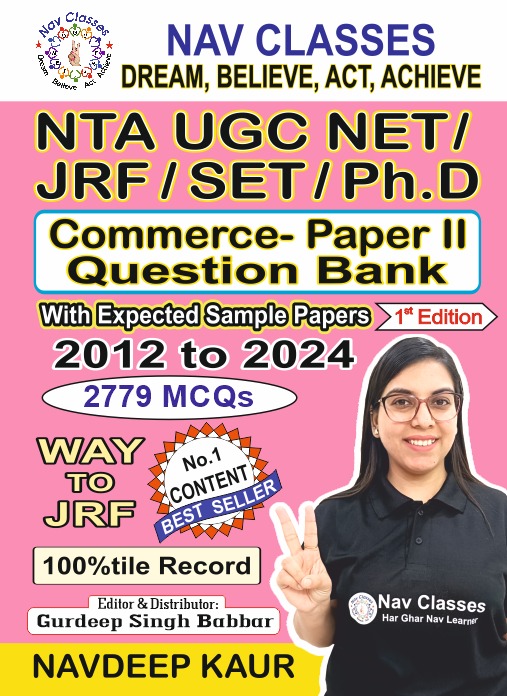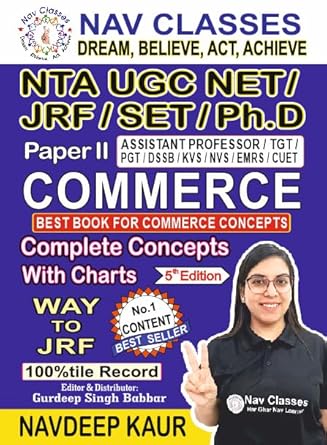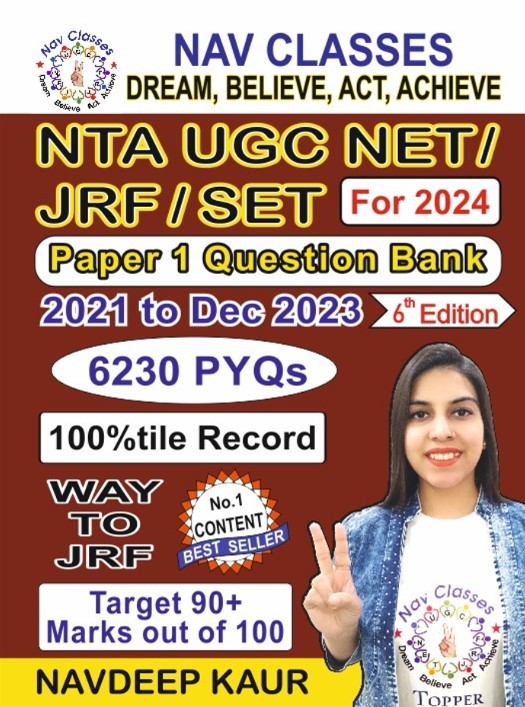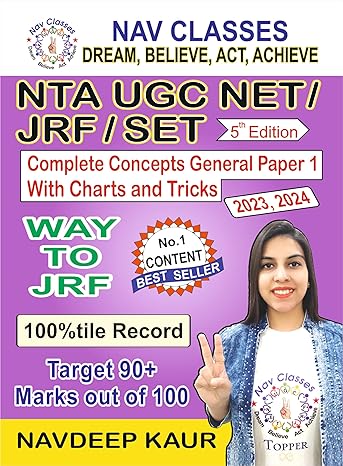Teaching Aptitude
- Levels of teaching (Memory Understanding and Reflective), Characteristics and basic requirements.
- Learner’s characteristics
- Methods of teaching in Institutions of higher learning: Teacher centred vs. Learner centred methods; Off-line vs. On-line methods (Swayam, Swayamprabha, MOOCs etc.).
- Choice Based Credit System in Higher education, Computer based testing, Innovations in evaluation systems.
Unit-II Research Aptitude
- Research Types
- Positivism and Post positivist approach to research.
- Methods of Research: Experimental, Descriptive, Historical, ethnographic, Qualitative and Quantitative methods.
- Steps of Research.
- Thesis and Article writing: Format and styles of referencing.
- Application of ICT in research.
- Research ethics.
Unit-III Comprehension
- Practice at least once in week
Unit-IV Communication
- Effective communication: Verbal and Non-verbal,
- Inter-Cultural and group communications,
- Classroom communication.
- Barriers to effective communication.
- Mass-Media and Society- Assertion based General awareness
- Para language
Unit-V Mathematical Reasoning and Aptitude
- Number series,
- Letter series,
- Codes and Relationships.
- Fraction,
- Time & Distance, Ratio,
- Proportion and Percentage, Profit and Loss,
- Interest and Discounting, Averages
- Age based
- Blood relation
- Direction
- Short puzzle
Unit-VI Logical Reasoning
- Understanding the structure of arguments: argument forms, structure of categorical propositions,
- Mood and Figure, Formal and Informal fallacies,
- Uses of language, Connotations and denotations of terms,
- Classical square of opposition, syllogism.
- Evaluating and distinguishing deductive and inductive reasoning.
- Analogies.
Indian Logic: Means of knowledge.
- Pramanas: Pratyaksha (Perception), Anumana (Inference), Upamana (Comparison), Shabda (Verbal testimony), Arthapatti (Implication) and Anupalabddhi (Non-apprehension).
- Structure and kinds of Anumana (inference), Vyapti (invariable relation), Hetvabhasas (fallacies of inference).
Unit-VII Data Interpretation
- Table-chart
Unit-VIII Information and Communication Technology (ICT)
- ICT: General abbreviations.
- Basics of Internet, Intranet,
- E-mail,
- Audio and Video-conferencing.
- Digital initiatives in higher education.
- ICT and Governance.
- Printers
- Input output devices
- Conversion in decimal, binary, signed
- Kb mb etc hierarchy
Unit-IX People, Development and Environment
- Millennium development and Sustainable development goals.
- Local, Regional and Global; Air pollution, Water
- pollution, Soil pollution, Noise pollution, Waste (solid, liquid, biomedical, hazardous, electronic),
- Climate change and its Socio-Economic and Political dimensions.
- Impacts of pollutants on human health.
- Natural and energy resources: Solar, Wind, Soil, Hydro, Geothermal,
- Biomass, Nuclear and Forests.
- Natural hazards and disasters: Mitigation strategies.
- Environmental Protection Act (1986),
- National Action Plan on Climate Change,
- Montreal Protocol,
- Rio Summit,
- Convention on Biodiversity,
- Kyoto Protocol,
- Paris Agreement,
- International Solar Alliance.
- General awareness
Unit-X Higher Education System
- Institutions in ancient India.
- Evolution in Post Independence India.
- Oriental, Conventional and Non-conventional learning programmes in India.
- Professional, Technical and Skill Based education.
- Value education and environmental education.
- Governance
- General awareness
Get subscription https://unacademy.com/plus/goal/TEWDQ
use my referral code for 10% additional discount: NAVCLASSES
Just leave everything on me i will teach completely with revision
Paper 1: Complete course with PYQs 2004 to 2019
Paper 1: Expected Question
Paper 2: Complete course
Paper 2: PYQs 2012 to 2019
Paper 2: Expected ques
Visit profile to enroll special class Follow me at free platform https://unacademy.com/@navclasses







One Response
Cephalexin Treatment [url=https://buyciallisonline.com/#]online generic cialis[/url] Amoxicillin Outdated Cialis Cialis In Berlin